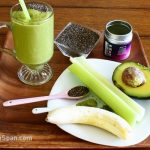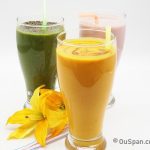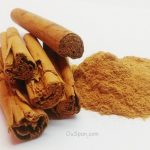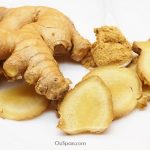
The excellent things about a smoothie are the fact that combining different fruits, vegetables, dairy products, nuts, seeds, and so on, you can build your own product with an adequate amount of essential nutrients. If your goal is weight loss, lean muscles gain, or just healthy eating, keep track of the total amount, calories, carbs, protein, fat of each product you placed into your blender.
The excellent things about a smoothie are the fact that combining different fruits, vegetables, dairy products, nuts, seeds, and so on, you can build your own product with an adequate amount of essential nutrients. If your goal is weight loss, lean muscles gain, or just healthy eating, keep track of the total amount, calories, carbs, protein, fat of each product you placed into your blender.
| Vegetables
Typically, in the smoothies, raw vegetables are used including carrots, beetroot, spinach, kale, celery, collard greens, broccoli, and cauliflower. Green smoothies contain at least 50% of raw leafy vegetables. Other 50% or less are mostly fruits. Right combinations greens and fruits improve the flavor and texture of raw vegetables providing a substantial amount of dietary fiber and other essential nutrients.
| Fruits
Fresh, frozen, canned, or dried fruits can be a great addition to a smoothie but do not overload it with fruits. Keep in mind that some fruits are high in calories and sugar. Also, the blended fruit will absorb by intestine quicker than the whole and, therefore, cause a blood sugar spike. Choose fruits low in the glycemic index if you want to lose weight or have diabetes or prediabetes.
| Dairy products & Protein
Protein-high ingredients in your smoothie will let you feel full and help to minimize blood sugar spikes. Milk, kefir, sugar-free yogurt, cottage cheese are sources for protein, fat, carbs, calcium, potassium, vitamin A, B, C, and D. Also, yogurt and kefir are well-known probiotic food.
For protein, you can also add products high in protein such as any nut butter, coconut milk, soy milk, organic raw eggs, oats, quinoa, flaxseed, or chia seeds. Avoid adding highly processed protein powders, use natural foods instead. However, if you use protein powders, be on the safe side and buy organic with no added sugar and no more than 25g protein per serving. Do not exceed 25g of total protein in your smoothie.
Smoothie Superfood and Boosters for Healthy Smoothie
| Green Tea
Health benefits of green tea are associated with anti-inflammatory, anti-carcinogenic, anti-oxidative, and thermogenic properties. Green tea can promote weight loss by reducing appetite, boosting metabolism, and limiting fat absorption. Freeze pour green tea into ice cubes and add them into your smoothie.
Another great alternative is Matcha green tea. Matcha is considered to be more nutritious than other varieties of green teas. Just add one teaspoon of graded Matcha into your green (high-fiber) or sweet (high-carbs) smoothies.
Caution: Do not add any green tea to protein smoothies. The polyphenol content of green tea can inhibit calcium and non-heme iron absorption.
| Flaxseeds
Flaxseeds are an excellent source of healthy beneficial components including the plant form of Omega-3 and Omega-6 fatty acids, lignans, dietary fiber, protein, minerals such as potassium, manganese, calcium, magnesium, iron, zinc and selenium, vitamins B, E, C, and K.
Potential health benefits of flaxseed include reduction of the risk of cardiovascular disease, high cholesterol levels, atherosclerosis, diabetes, cancer, arthritis pain, osteoporosis, autoimmune and neurological disorders. Due to flaxseeds have a firm surface, before adding into your smoothie, ground them.
Caution: To avoid potential side effects do not exceed one-two tablespoons of flaxseed powder a day.
| Chia seeds
Packed with Omega-3, protein, antioxidants, carbs that are mostly fibrous (83%), minerals including calcium, phosphorus, and potassium, chia seeds are considered to be the healthiest and the most concentrated food in the world.
One ounce of chia seeds (2 tablespoons) contains 10.6g of fiber (42% DV*), 4.4g of protein (9% DV), 177mg of calcium (18%DV), 0.6mg of manganese (30%DV), and 265mg of phosphorus (27%). This is the richest source of Omega-3 fatty acids. Chia seeds protein contains all nine essential amino acids.
Health benefits include a protective effect on cardiovascular health, stabilization of blood sugar level in type 2 diabetes, lowering triglycerides, and weight loss. Chia seeds are easily digested and absorbed. Therefore, you do not need to ground them. Chia gel is used as a thickener in smoothies.
The recommended dosage is 25 grams a day (2 tablespoons).
Caution:
- Chia seeds like flaxseeds have a blood-thinning effect. If you are already taking anticoagulants or other medicine like aspirin, ibuprofen, or sodium citrate, ask your doctor before using superfoods like chia seeds.
- Do not eat dry chia seeds because they can expand in the esophagus and cause a blockage. Soak them in your food before consumption.
| Cinnamon
Cinnamon is well-known and highly used spices all over the world. Ground cinnamon consists of carbs that are 66% fiber, 4% protein, minerals such as calcium (28% DV), iron (13% DV), manganese (245% DV), vitamins K (11% DV), B, C, and A. The beneficial cinnamon properties derive from a compound Cinnamaldehyde that occurs naturally in the bark of cinnamon plants.
Cinnamon has been used for healing purposes in traditional Ayurvedic and Chinese medicine. Its health benefits include antimicrobial and anti-carcinogenic, as well it reduces blood sugar and cholesterol levels. Also, cinnamon is a powerful antioxidant and promotes metabolism boosting by thermogenic responses.
Make sure to use 'True' Ceylon cinnamon which possesses all health benefits but no side effects of Cassia cinnamon. The recommended consuming dose is 2-6g a day (1-2 teaspoons).
| Ginger
Like cinnamon, ginger root has been used for a century in traditional herbal medicine. Raw ginger contains 79% water, 18% carbohydrates, 1.8% protein, 1% fat, minerals such as potassium, magnesium, copper, and vitamins B and C.
The main active phenolic compound is gingerols which is responsible for the specific aroma and which possess a number of beneficial properties including antioxidative, anti-tumor and anti-inflammatory. Ginger also contains phenolic compounds such as shogaol and paradol.
Health benefits include relieving nausea, inflammation, osteoarthritis, and loss of appetite. Ginger helps manage cholesterol, lower triglycerides, promote weight loss, also, can improve cognitive abilities and shows antimicrobial and analgesic effects.
The recommended dosage: 1-3 grams daily.
Note. Do not add too many nutrient-dense ingredients at once, choose one or two and do not exceed the recommended dose.
DV* - Daily Value



